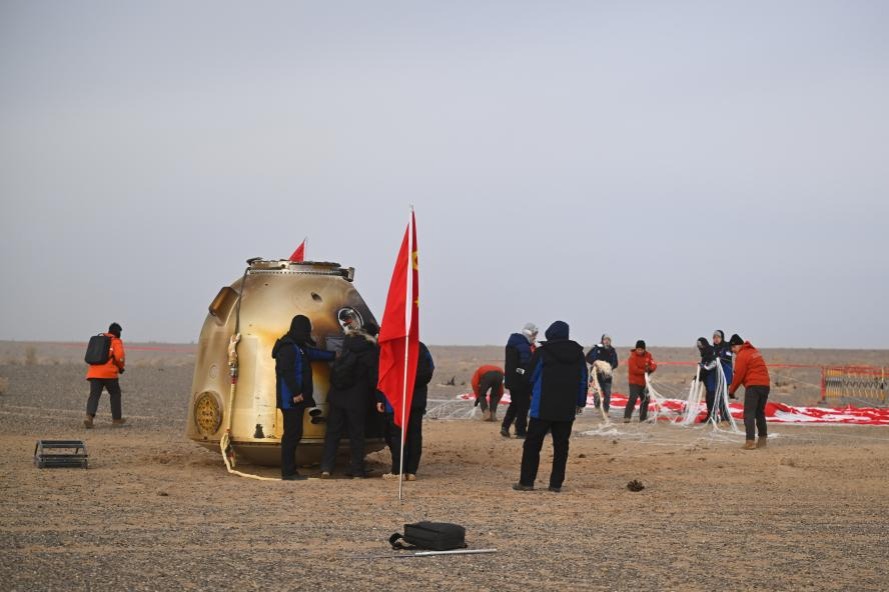For younger Sinologists, it's a new China

| John Delury, assistant professor of international studies at Yonsei University in Seoul, argues that fuqiang, or wealth and power, is fundamental to China's development right up to President Xi Jinping's vision of a Chinese dream. Hua Yu / China Daily |
Dwelling on past failures no longer cuts it when trying to explain the country, author says
John Delury says modern Sinologists now have to explain China's success instead of being apologists for its backwardness.
The 39-year-old academic believes his new generation of China watchers perhaps has a happier role than those who walked the academic corridors just a few decades ago.
"The story has changed quite dramatically. What previous historians had to try to understand was how China descended into failure and backwardness. This dominated the thinking of generations of Americans and other Westerners who studied China.

"I, however, have come out of this new scholarly trend where you have to explain almost the opposite. People want to understand the sources of China's success and its rise."
His book Wealth and Power: China's Long March to the Twenty-First Century, which he co-authored with Orville Schell and is one of the most acclaimed books on China in recent years, threads a central theme through the country's recent history.
Published in Chinese in February and about to come out in paperback next month, it examines, as its title suggests, how fuqiang, or wealth and power, inform both China's past and present.
Delury, who was speaking in the lobby of the Grand Hyatt in Beijing, itself an opulent symbol of how China's fortunes have changed, argues the concept is fundamental to China's development right up to President Xi Jinping's vision of a Chinese dream.
"This theme is a way of tying many strands together to offer a sort of grand narrative. It is a blend of China's legalist political tradition (in which individuals are considered less important than the power of the state) and Confucianism."
Delury, who is assistant professor of international studies at Yonsei University in Seoul, says he and his co-author believe that by using this concept as a monograph they could come up with a better understanding of China than many other books that make big and sweeping predictions about the country's future.
"We were pretty disciplined about not forecasting or predicting where all this was going. Orville and I are not prognosticators.
"The book actually tries to end with a question mark. Our idea is to give the reader a much deeper and richer framework with which to think and base their opinions about China now."
Delury says collaboration with Schell, now 74 and the Arthur Ross director of the Center of US-China Relations in New York and author of a number of books on China, was key. He is one of the older generation of Sinologists who once had to explain why China fell so rapidly from the dominant position of the world's largest power in 1800.
"My first trip to China was exactly 20 years ago, and his was about 40 years ago, so we have this 20-year gap. I think this has worked well. He has got this incredible experience as a China watcher and has seen all these permutations."
The book looks at wealth and power through 11 key figures in modern Chinese history, including the 19th century scholar and official Wei Yuan, the Empress Dowager Cixi, China's first republican leader Sun Yat-sen, Chairman Mao, Deng Xiaoping and the 1990s economic reforming premier Zhu Rongji.
"It made a sort of immediate sense for us to use biography and use thumbnail sketches. I had in mind Lytton Strachey's Eminent Victorians, which is a mini historical masterpiece. He uses phenomenal prose and I am sure our writing doesn't compare to his."
In contrast with many of the new wave of books about China, Wealth and Power is well written.
"We actually spent a huge amount of time on the prose. If you are going to write a book you may as well write it well."
The book gives full due to the importance of often overlooked figures such as Cixi, who has also been the subject of a recent popular biography.
"She emerges on the political stage in 1861 when her husband, the emperor, dies, and doesn't get off again until 1908. She is the most important Chinese political figure of that time, although perhaps not at any particular moment."
Mao, who gets two chapters (as does Deng), is one of the modern figures who personifies wealth and power.
"He is an icon for the nation itself, a cipher for modern China. The early Mao provides the resistance against Japan and is responsible for establishing China as a unified independent country."
Deng, he says, is a fascinating figure because he was born when Cixi still ruled China in 1904 and survived to put the reforms in place that took the country into the modern era.
"Deng's reforms were a product of lessons learned over a long lifetime. He was someone who could recognize a failure as a failure and try to figure out what was wrong and correct the mistake," he says.
Delury, who is of Irish descent and was born and brought up in Sacremento, California, developed an interest in China when he read the works of the philosopher Zhuang Zhou, who was born around 369 BC and was one of the founding fathers of Taoism.
"I became quite passionate about books at 15 and for some reason Zhuang Zhou reached me most powerfully."
He studied mainly European history at undergraduate level at Yale, although he took as a subsidiary the famous courses taught by Jonathan Spence, perhaps the greatest living Sinologist.
When it came to doing his doctorate it was a choice between Irish history or Chinese history.
"A family friend who was a pretty high up official in the Californian state government sat me down and said that if I did Irish history, I could have a nice career at some American university and Irish-Americans would read my books," he recalls.
"But he added that if I took the other option everyone would want to read what I write because I would be at the center of the most important relationship of the 21st century. You could imagine which course was the most appealing to an ambitious young man."
The choice proved to be an enlightened one and apart from his position at Yonsei, he is also the senior fellow at the Asia Society Center on US-China Relations in New York.
As well as China, Delury is regarded an expert on Korean issues and is a regular commentator on BBC and CNN.
"My wife is Korean and we met in Beijing. I remember us going to Australia and walking down the street and the only language we could communicate in was Chinese."
Delury hopes Wealth and Power provides an insight into why China is the country it is today.
"I think it is neither panda hugging nor critical of China. China has this very complex psychology where it is this extraordinary economic dynamo and rising political force while at the same time part of its identity is defined by humiliation, poverty and weakness."
However, he believes that if it continues on its current trajectory its so-called century of humiliation will be seen as an aberration.
"If it is sustained then China will return to its historical norm, at least regionally, as a dominant power."
andrewmoody@chinadaily.com.cn
(China Daily Africa Weekly 08/29/2014 page32)
Today's Top News
- Wake-up call for Europe to review its dependency: China Daily editorial
- China reports 5% GDP growth in 2025
- Return capsule of Shenzhou XX safely returns to Earth
- Sanya rises as magnet for Russian tourists
- China's steady opening-up for Asia-Pacific economic growth
- Blueprint seen as a boon for entire world






























